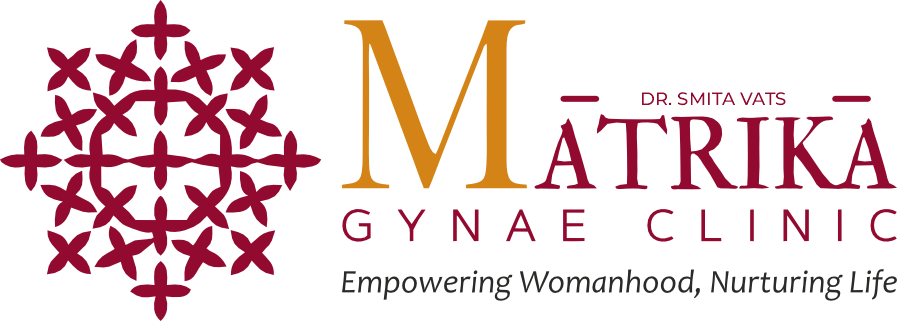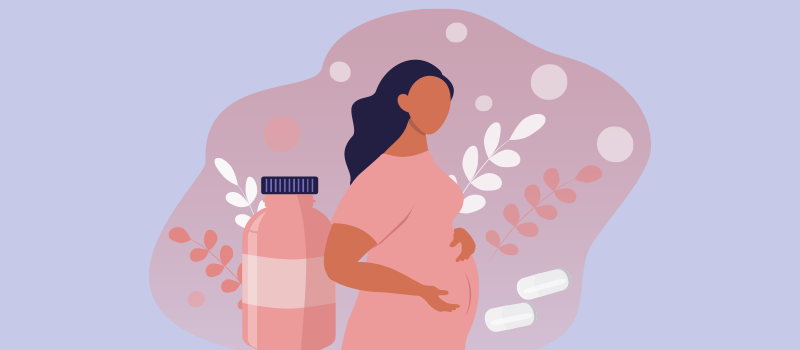The news of a pregnancy may generate mixed feelings in most couples. On one hand there is the joy and excitement of bringing a new life into this world, but alongwith that also comes some anxiety and stress as the mother-to-be wonders whether she will be able to fulfill the role of a care-giver and nurturer to perfection. Some of the anxiety and mood swings can be attributed to the hormonal variations of pregnancy, but a major concern for most women is how to make sure that they are eating right to promote adequate growth and wellbeing of the baby. This is also aggravated by the change of appetite and nausea during pregnancy.
Well, the best way to ensure a healthy pregnancy and a healthy baby is to consume a balanced diet but in most cases, the diet alone may not be sufficient to provide all the necessary nutrients in required amounts. Hence some of these are essentially added as supplements in various food items or as medications.
The supplementation for Iron, Calcium and Folic acid has been recommended during pregnancy for a long time, but recent research also suggests that it may be beneficial to supplement another nutrient, DHA ( Docosahexaenoic acid), for pregnant and breastfeeding women. This has been recommended based on its important role in the baby’s brain and neurological development apart from also having other beneficial effects for the baby and pregnancy . DHA is an Omega-3 fatty acid and is not synthesized by the body so it has to be obtained either through diet or supplements.
Why is DHA needed in pregnancy and lactation ?
The importance of DHA can be understood by the fact that although it is found in all the body cells, its concentration is highest in the brain tissue, nerve cells and the cells of the retina of the eyes. According to a study published in the medical journal- Reviews in Obstetrics and Gynaecology, DHA comprises about 97% of all omega 3 fats in the brain and 93% in the retina.
It also has beneficial effects by preventing low birthweight & preterm birth by prolonging the duration of pregnancy by about 6 days.
Omega 3 fatty acids have important effects that prevent atherogenesis and thrombosis in blood vessels and have beneficial cardiac effects.
Studies indicate that children whose mothers received DHA supplementation during pregnancy perform better in tests on sustained attention & neural development at 5 years of age.
When should DHA supplementation be started in pregnancy ?
DHA is particularly important for the accelerated development of brain and retina during the third trimester of pregnancy , however it is recommended to increase its intake right from the start of pregnancy and continue it while breastfeeding. This is because the development of brain tissue and nerve cells starts as early as the 3rd & 4th week of pregnancy and a scientifically designed balanced diet right from the beginning can be extremely beneficial for optimum brain development of the baby.
The fetus is incapable of synthesizing its own DHA and depends upon the mother’s dietary intake for its requirement. The nausea and vomiting of early pregnancy can be an impediment to adequate dietary intake of DHA and Omega-3 fatty acids in these months.
What are the dietary sources of DHA ?
Medical experts suggest that the daily requirement should be supplied through three sources which include-
- Supplements
- Vegetable oils ( Flaxseed/ Canola/ Soyabean oils) and
- Low-mercury fish like Salmon, Mackeral or canned Tuna.
- Other dietary sources include certain microalgae and egg yolk.
There is a special need to add supplementation to the diets of women who are strictly vegetarian or vegans. Even women who eat fish are restricted in their intake due the concern for mercury content of the fish. Pregnant women should not eat more than two portions of fish in a week and should avoid eating shark, swordfish, marlin etc as their high mercury content can adversely affect the nerve tissue development of the developing baby. Hence, products containing adequate recommended concentration of DHA are an important source to provide the required daily source of the nutrient for the growing baby.
How can I ensure adequate daily intake of DHA during pregnancy and lactation ?
Mother’s Horlicks, with 27 vital nutrients, is specialized nutrition for expecting mothers.
It contains nutrients (like Iron, Iodine, Folic Acid, Zinc, Magnesium,Vitamin A, B6, B12 and D) which are known to help improve the birth weight of the baby.
Mother’s Horlicks also contains DHA and Choline, important for brain development of the baby.
It provides calories (352kcal/100gms) which help to meet the increased demands of energy in pregnancy.
Mother’s Horlicks is also high in protein (as per Codex guidelines)
Thus Mother’s Horlicks is a pregnant woman’s partner in the joyous journey of pregnancy promoting the brain development and function of the baby and ensuring adequate growth. It also has a high protein content and improves the quality of breast milk in lactating mothers providing at least 50% RDA of essential Immuno nutrients to boost the baby’s immunity.
References:
https://www.ncbi.nlm.nih.gov/pmc/articles/PMC2621042
http://www.jpeds.com/article/S0022-3476(10)00497-X/fulltext#


